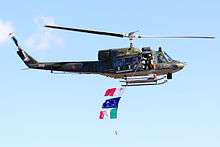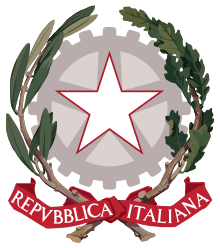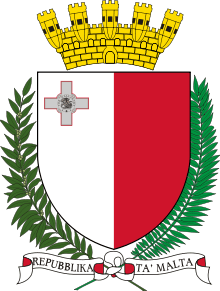Italy–Malta relations
 |
|
Italy |
Malta |
|---|---|
Italy–Malta relations are foreign relations between Italy and Malta. Both countries established official diplomatic relations soon after Malta's independence. Italy has an embassy in Valletta. Malta has an embassy in Rome and 18 honorary consulates (in Bari, Bologna, Brescia, Cagliari, Catania, Genova, Livorno, Milan, Naples, Palermo, Perugia, Reggio Calabria, Savona, Siracusa, Torino, Trieste, and Venice). Both countries are members of the European Union and of the Union for the Mediterranean.
History
Malta and the Italian peninsula have a long history of relations given their close proximity. Malta was part of the Normans' Kingdom of Sicily and remained associated with the Italian kingdom until 1194.[1] The Kingdom of Naples would be involved in the war against the French occupation of the island. In 1800 Malta became a protectorate jointly administered by Naples and the United Kingdom, although the latter had more influence. By 1813 the island became a British colony and thus moved outside the Italian sphere, although the presence of Italian culture and language remained strong. Indeed, Italian designs on the island were highlighted in April 1933, when on a visit to the island, Italian cabinet undersecretary Francesco Giunta stated that he was on Italian soil and that the future of the island lay in complete union with Italy.[2] The two countries clashed during World War II when Italy bombed the island during the Siege of Malta.
In 1980, Malta entered into a neutrality agreement with Italy, under which Malta agreed not to enter into any alliance and Italy agreed to guarantee Malta's neutrality.[3] Malta's relations with Italy have been described as "generally excellent".[4]
See also

References
- ↑ Castillo, Dennis Angelo. The Maltese Cross: A Strategic History of Malta. Greenwood Publishing Group. ISBN 0-313-32329-1.
- ↑ Manfred Pfister & Ralf Hertel, Performing National Identity , 2008, pp. 173-4
- ↑ Woodliffe, John (1992). The Peacetime Use of Foreign Military Installations Under Modern International Law. Dordrecht: Martinus Nijhoff. pp. 99–100. ISBN 0-7923-1879-X. Retrieved 2009-04-11.
- ↑ David Attard & Dominic Fenech, "The Law of the Sea and Jurisdictional Issues in the Mediterranean." In Naval Policy and Strategy in the Mediterranean: Past, Present and Future. Edited by John B. Hattendorf. London: Frank Cass, 2000. P. 362. ISBN 0-7146-8054-0. Accessed 2009-04-11.

